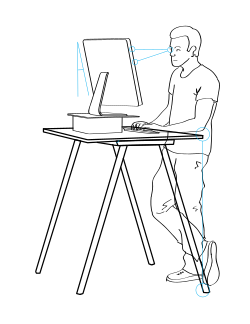Many students spend huge amounts of time engulfed by the content on their phones, often despite teacher instruction occurring and rules forbidding device usage. Much of this time for some students is spent on the social media app TikTok, which utilizes an addictive algorithm in the form of short videos to grab and keep students’ attention.
TikTok has been looked upon with disdain and suspicion by both privacy advocates and USA’s government officials. TikTok’s parent company is Bytedance, which is based in China. TikTok collects a large amount of user data, as it outlines in its privacy policy, which makes officials worried about the data being sent to the Chinese Communist Party to be used against the USA.
Despite what legislators may say, their “concerns” over TikTok and how it handles U.S user data does not set grounds for a ban on TikTok. USA user data isn’t sent to any servers in China or in countries that may send China information. According to Reuters, a news website, any and all data from TikTok’s US user base is sent to cloud servers managed by Oracle, an American tech giant. The data is also managed by a US-based security team; therefore, the C.C.P. couldn’t even access the data if they wanted to.
Another reason why TikTok shouldn’t be banned is because it would set a hypocritical precedent. One of the reasons why people could be against TikTok is because it can “shorten” a user’s attention span, according to The Independent. Other popular apps though, such as YouTube, Snapchat, and even Netflix, have created their own short-form content. Such precedents held against TikTok aren’t applied much against these other platforms, which makes this reasoning weak. If the population is to consider the decaying attention span caused by TikTok, then the same idea should be held against all websites and apps that have short-form content.
Finally, the bill itself contains language that could create problems in the future. The bill, which is known by the US Congress from its latest summary as the “Protecting Americans from Foreign Adversary Controlled Applications Act” does not only target TikTok. This bill, if passed, can target any social media platform that is controlled by a foreign adversary. The “exemptions” that this bill has for foreign-controlled apps are those that are made for reviews (product, business, and travel) along with travel information; these apps are essentially exempt from this bill. However, this bill’s exemptions may create a loophole in which they could target almost any foreign app, granting far too much power to the government.
All in all, the TikTok ban is based on disingenuous rumors and problems that happen to apply to every social media platform. The bill also has dangerous language with underlying implications that can be used against multiple apps operated by “foreign adversaries.”








